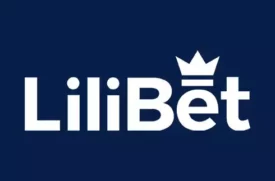
Sports Betting Bankroll Management – A how to guide of 4 popular models
Sports Betting Bankroll Management – A how to guide. When it comes to sports betting, bankroll management may not be the most glamorous topic, but it’s undeniably one of the most critical aspects of a successful approach.
The Ultimate Guide to Effective Bankroll Management in Sports Betting
When it comes to sports betting, bankroll management may not be the most glamorous topic, but it’s undeniably one of the most critical aspects of a successful approach. In the world of sports betting, where margins are razor-thin, achieving a break-even point of 52.38% after accounting for the standard -110 vig is a formidable challenge. Winning more than 60% of your sports bets is nearly unheard of. This underscores the importance of mastering bankroll management, which is arguably the most vital skill outside of handicapping games.
Unibet, William Hill, and other top betting sites like Bet Zone, Lilibet, and 10bet all recognize the significance of effective bankroll management in helping their users succeed. Let’s delve into what bankroll management entails and how it can elevate your sports betting game.
Table of Contents
- Introduction
- What is Bankroll Management?
- Why is Bankroll Management Important?
- Determining Your Wager Size
- Understanding Units in Sports Betting
- Bankroll Management Strategies
- Flat Betting Model
- Percentage Model
- Confidence Model
- Kelly Criterion Model
- Tracking Your Betting Results
- Dealing with Streaks
- Preventing Gambling Addiction
- Conclusion
What is Bankroll Management?
In the realm of sports betting, your bankroll differs from your real-world finances. Unlike your regular income, your ability to generate more money in sports betting relies solely on the use of your current funds. If you’re overly aggressive and deplete your bankroll, you won’t be able to generate additional income without reloading your betting account. Therefore, it’s crucial to safeguard your bankroll and aim to nurture it responsibly.
To succeed, you must view beating the sportsbooks as a long-term endeavour. Given the narrow margins, short-term fluctuations can significantly impact your bankroll if you’re too reckless. It’s only over an extended period that consistent success becomes more certain.
How Much Should You Wager on Each Game – Example on NBA Lines?
Ideally, bettors with substantial bankrolls can comfortably wager around 1% of their bankroll on each bet. However, this approach isn’t always practical, especially for beginners. Starting with a bankroll of $1,000, for instance, would mean wagering just $10 per bet, which might not be enticing.
While it’s acceptable to be more aggressive with a smaller bankroll, it’s advisable not to exceed 5% of your total bankroll for each bet. A happy medium is typically around 2.5%.
Whether you opt for 1%, 5%, or something in between, this amount is considered your standard “unit” size. Units are a common metric in sports betting, facilitating comparisons of results among bettors with varying bankrolls. For instance, a bettor with a $10,000 bankroll using 1u units would have a different perspective than a bettor with a $500 bankroll also using 1u units.
Sports Betting Bankroll Management Strategies
Flat Betting Model
The flat betting model is the simplest and safest bankroll management strategy over the long run. It entails setting a unit size and consistently betting one unit on each wager. Regardless of recent betting form, confidence level, or odds, you stick to betting one unit.
You can choose between the “to win” method or the “risk” method. In the “to win” method, you consider the vig when aiming to win one unit. For instance, on a standard -110 odds bet, you risk 1.1 units to potentially win 1.0. In the “risk” method, you don’t wager the additional units to cover the vig, meaning you risk 1.0 unit to potentially return 0.91.
This approach preserves your bankroll while ensuring profitability if you consistently pick winners above the break-even point. However, you must periodically review your bankroll to adjust your unit size based on your performance.
Flat Betting Model
| Aspect | Description |
|---|---|
| Strategy Type | Flat Betting Model |
| Unit Size | Fixed unit size (e.g., 1 unit per bet) |
| Advantages | – Simplicity and ease of implementation<br>- Consistency in betting size regardless of confidence or recent results |
| Considerations | – Periodic review and adjustment of unit size based on performance |
| Risk Level | Low |
| Suitable For | Beginners and those who prefer low-risk approaches |
Bet £10 Get £30 in Free Bets
- Great welcome offer
- Competitive paybacks
- Excellent promotions
UK Sports - Deposit £10 Bet £10 Get £30
- Attractive promotions
- Vast market offering
- No withdrawal limit
Percentage Model
Similar to the flat betting model, the percentage model begins with setting a unit size. However, instead of predefining the unit size, it’s determined by your bankroll. Initially, the numbers align closely, but your unit size adapts more rapidly than in the flat model.
For instance, with a $1,000 starting bankroll and a desired 2.5% unit size, your first bet would be $25 in both models. If you win the first bet, your bankroll increases to $1,025, making your next unit size $25.63.
This strategy allows you to capitalize on winning streaks, but it can be challenging to recover from losses. Timing your win streaks becomes crucial, making it slightly riskier than the fixed-unit model.
Percentage Model
| Aspect | Description |
|---|---|
| Strategy Type | Percentage Model |
| Unit Size | Variable unit size based on a percentage of the bankroll (e.g., 2.5% of bankroll per bet) |
| Advantages | – Capitalizes on winning streaks<br>- Aligns with bankroll size |
| Considerations | – Potentially challenging to recover from losses<br>- Timing win streaks is crucial |
| Risk Level | Moderate |
| Suitable For | Bettors comfortable with some variability in bet size and willing to manage bankroll actively |
Confidence Model
The confidence model permits you to increase your bet size in games where you feel more confident. Your standard wager remains 1.0 unit, but you can occasionally raise it to two or three units. Reserve higher unit sizes until you consistently demonstrate success with your most confident bets.
Tracking your confidence level for each wager helps determine whether this model suits you. Even if you start with the same unit size for all bets, monitoring your results based on confidence levels can guide your betting strategy. Additionally, you can allocate half-units to higher-upside wagers like parlays and moneyline underdogs.
Confidence Model
| Aspect | Description |
|---|---|
| Strategy Type | Confidence Model |
| Unit Size | Standard unit size (e.g., 1 unit per bet) with occasional increases for more confident bets |
| Advantages | – Allows flexibility in bet size based on confidence<br>- Can optimize returns on strong bets |
| Considerations | – Requires monitoring and assessment of confidence levels |
| Risk Level | Moderate (can be adjusted based on confidence levels) |
| Suitable For | Bettors who want to adapt bet size to their confidence in each wager |
Kelly Criterion Model
The Kelly criterion model takes confidence-based betting to the next level by attempting to determine your precise winning percentage for each wager. Using a formula, you calculate the percentage of your bankroll to put at stake based on the odds and your win probability.
This method is more complex and should only be attempted after extensive research into your ability to gauge winning percentages accurately. Many professional bettors use a half or quarter Kelly criterion model, which suggests wagering half or a quarter of the recommended bankroll amount. This approach offers more upside than traditional flat or percentage betting while mitigating some risks.
Kelly Criterion Model
| Aspect | Description |
|---|---|
| Strategy Type | Kelly Criterion Model |
| Unit Size | Determined by a mathematical formula based on odds and win probability |
| Advantages | – Offers potential for higher returns with controlled risk<br>- Based on precise calculations |
| Considerations | – Complex and requires accurate win probability estimation |
| Risk Level | Variable, based on calculations |
| Suitable For | Experienced bettors with the ability to estimate winning percentages accurately |
Tracking Your Results – Example NFL Odds
Regardless of the bankroll management system you choose, tracking your results is essential. It provides the knowledge you need to evaluate your performance. By analyzing your data, you can identify strengths, weaknesses, and areas for improvement.
Creating a spreadsheet or using a dedicated app to track your bets is a wise practice. It allows you to assess your performance across different sports, confidence levels, and bet types.
100% DEPOSIT BONUS FOR ODDS + UP TO 5000 KR
- Amazing promotions
- Excellent Choice of Games
- Great Welcome Offer
WELCOME PACKAGE €450 + 250 Free Spins
- Great Welcome Package
- Strong game offering
- Top support
Up to £40 + £10 Casino Bonus
- Excellent promotions
- Top odds and boosts
- Vast range of games
Bet £10 Get £30 in Free Bets
- Great welcome offer
- Competitive paybacks
- Excellent promotions
The Significance of Bankroll Management
Effective bankroll management isn’t just about financial prudence; it also addresses psychological factors inherent in sports betting.
Dealing with Streaks
Handling losing streaks can be challenging, even for seasoned bettors. It’s human nature to want to “chase your losses,” but this is a detrimental approach. Implementing sound bankroll management ensures you avoid chasing losses, preserving your bankroll for future bets.
Similarly, winning streaks can lead to overconfidence and poor decision-making. While it’s acceptable to increase your bet size during winning streaks, it must be done responsibly to protect your bankroll.
Gambling Addiction
Bankroll management plays a vital role in responsible gambling. If you suspect you have a gambling problem, seek help from available resources. Proper bankroll management can help you maintain control over your sports betting activities, preventing them from spiraling into addiction.
Conclusion
Bankroll management stands as one of the cornerstones of success in sports betting. It safeguards your bankroll over the long term, a critical factor in achieving profits in a field with slim margins. Establishing an appropriate unit size is the initial step in effective bankroll management. Additionally, various betting methods can enable you to adjust your wager size based on your confidence level. Lastly, tracking your results allows you to identify areas of strength and areas











